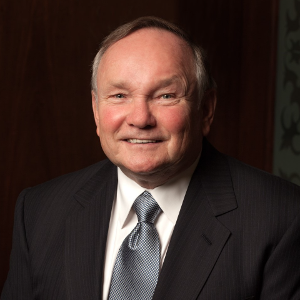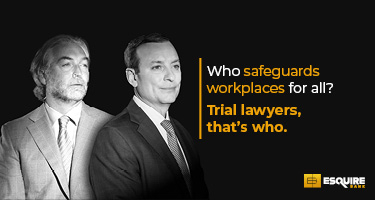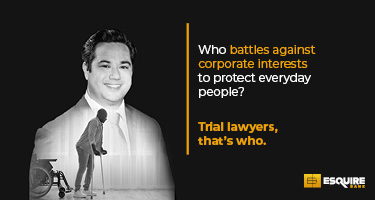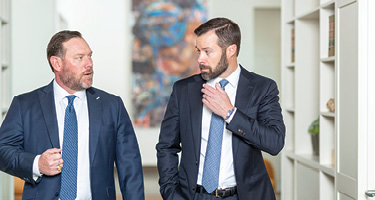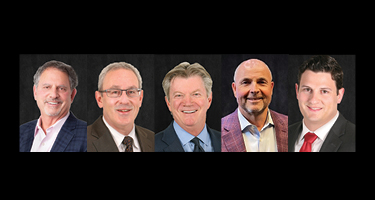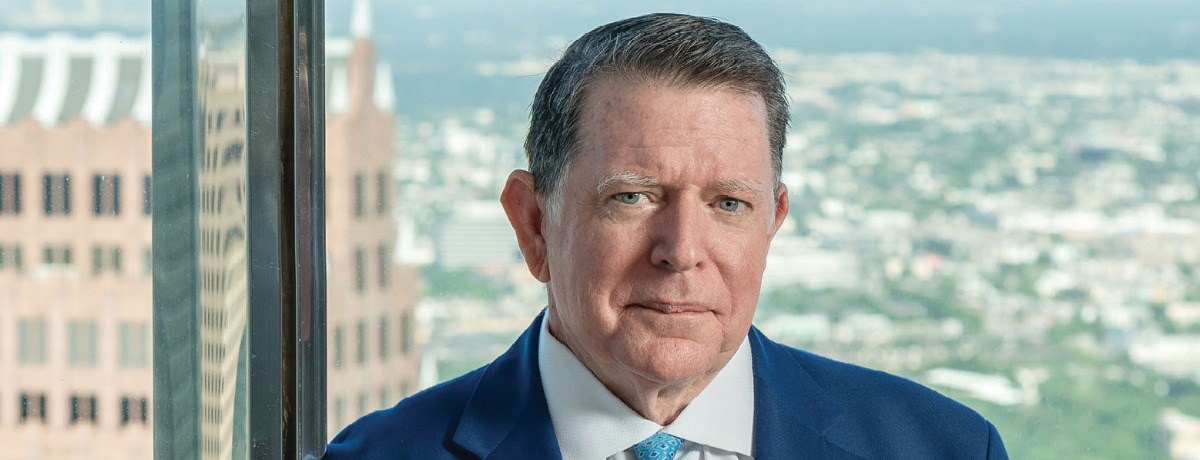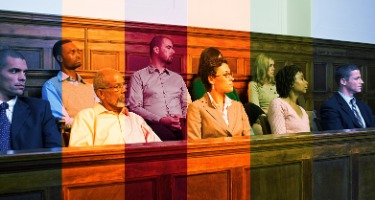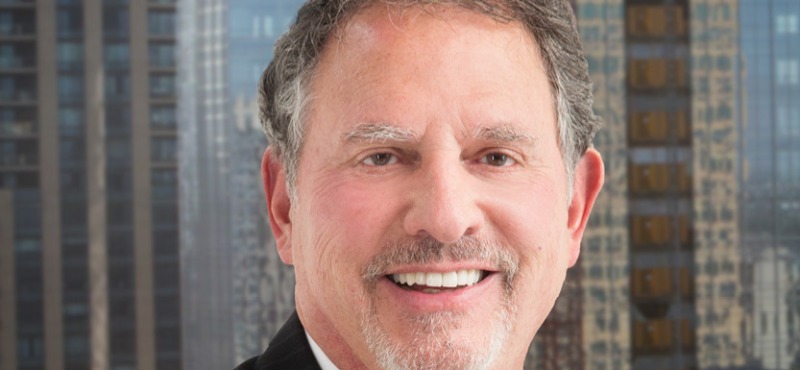After many years of trying cases to verdict, trial lawyers can become overly confident in their ability to pick a jury. For seasoned trial lawyers, it’s easy to assume that experience is the most valuable attribute in identifying favorable jurors. At the other end of the spectrum, young trial lawyers lose sleep worrying about their lack of experience picking juries.
Yes, experience is important—but juror research reminds us time and again how relying solely on it can mislead a lawyer during jury selection. No lawyer knows all, and learning never stops. Assumptions about people are more often than not wrong. Times change, people change ... and juror profiles change. We have one message for lawyers who try high-profile, large-exposure cases: Do your homework.
Jury research is an invaluable tool for trial lawyers. Two main sources of data exist: In the not-so-distant past, jury research took the form of live focus groups, in which a small pool of people hear case synopses in the style of a closing argument. After arguments, mock jurors deliberate, fill out verdict forms, answer survey questions, and provide background information.
Today, a second arena of data has generated an entirely new avenue of information: online jury research. Online jury research is particularly helpful as it provides a much larger data pool which can be used to formulate favorable juror profiles.
As long as it’s done properly, the benefits of jury research can’t be overstated. It gives attorneys objective data on case value, enabling law firms to attend mediations with true understanding of case value. When high-stakes clients ask how we came to our recommended value, our lawyers are able to offer a comprehensive explanation of how jurors are likely to perceive and decide the issues at hand, from problems or strengths in liability or causation to the measure of damages. Our clients know that the advice we give them is based on analytics and data, not whim or gut feeling.
Jury research also allows lawyers to test multiple aspects of a case. Do you have one where liability seems sound but there’s a question as to whether a parent corporation will be held vicariously liable, such as a medical-malpractice case with a question of agency between a hospital and doctor? That can be tested. Or one in which significant damages are apparent but there’s a serious contention that the underlying condition was preexisting? That can be tested as well.
Lawyers can pick and choose, à la carte, to focus on specific aspects of their cases. One of the most valuable aspects of jury research is talking to the mock jurors after the focus group is over. Mock jurors can give invaluable insight into the shortcomings of certain arguments, or identify what they would have needed to hear to decide in your client’s favor. Such input can help you determine which parts of your case need to be reframed before trial, or which evidence you can highlight to be most persuasive.
Attorneys want to control every aspect of a trial, but a jury behind closed doors is beyond control.
Most importantly, jury research tells attorneys who they do and do not want on their jury. Settlement is often an option, but we became lawyers because we wanted to try cases. The best lawyers are those who show a willingness to try any case, no matter the odds.
The single most important part of a trial is jury selection. Opening statements are important, cross-examination is critical, and a persuasive closing argument can turn a case. But when it’s all over, the individuals picked at the outset of the trial retire to a room to discuss their verdict without any input from lawyers. Attorneys want to control every aspect of a trial, but a jury behind closed doors is beyond control. The only influence lawyers have over deliberations is who gets to partake in them. You must therefore start the selection process months or even years before it actually takes place. Jury research is the only way.
One argument often made against jury research is the time and cost it requires, and it’s true that it can run to the tens of thousands of dollars. If done in full, it can involve consultants, multiple jury panels, audiovisual technology, and location rental. It’s also true that jury research takes significant hours and effort—but for a high-profile case, we’d argue it’s a disservice to your clients not to do it.
Less expensive ways to conduct jury research are of course available. The essence of a focus group is to get a number of individuals with no information about your case into a room to listen to conflicting arguments and then discuss what they’ve just heard. This can be done inexpensively. Any cost analysis, naturally, must be done on a case-by-case basis.
In major cases, the stakes are often millions or tens of millions of dollars or more. Proper resource investment won’t guarantee good results, but it’s a necessary prerequisite. We always tell our lawyers that we need to try more of our good cases and settle more of those that don’t turn out quite the way we expected when we took them. Jury research will tell an attorney whether a case is worth taking to trial or whether there’s risk that needs mitigation—and a settlement reached—for the client’s benefit. Making this determination without sufficient research is nothing more than speculation.
Our office recently had a high-profile trial involving the death of a minor who was survived by his parents and siblings. Logic told our legal team that we should target jurors with young children—who better to understand what the loss of a child would mean to a family? The proposition seemed indisputable.
We conducted jury research in two formats: one, a live focus group, and the other an online survey. Our presumptions turned out to be completely wrong. Our worst jurors were parents with young children, and our best were individuals who had no children themselves but who did have nieces and nephews.
Interestingly, one of our mock jurors was himself the father of young children, and he awarded the least amount of compensation to the family. The fact that he had small children isn’t what drove his bias against our clients, but the assumption that he would identify with them on this basis alone proved not so. Invaluable research showed the trial team that other factors were at play, that we needed to look at life experiences beyond mere similarities to our plaintiffs to truly understand what kind of juror we sought.
Jury selection is a fragile undertaking. Each side is presented with a limited number of peremptory challenges to dismiss jurors who are perceived to be unfavorable to your case but who cannot be discharged for cause. In the trial mentioned above, it seemed that our opponents made the same assumption we did: that jurors with young children would favor the plaintiffs. We watched as our opponents used their own peremptory challenges on jurors who fit that profile—jurors our research showed would be unfavorable to us and whom we would have needed to use challenges ourselves. The knowledge we gleaned from pretrial jury research enabled our team, in effect, to turn the defense’s peremptory challenges into our own.
Never be so bold as to assume that you know all, and never be afraid to admit the things you don’t know. Confidence is important in a trial lawyer, but knowledge reigns supreme. Jury research will take away bias and give you objective information with which to make decisions. It tells you what types of jurors are best suited for your case—so get out there and do your homework.
Robert A. Clifford is the founder of Clifford Law Offices in Chicago, an internationally recognized trial firm that concentrates in plaintiffs’ aviation, transportation, personal injury, medical negligence, product liability law, mass torts and class actions. He was named Lead Counsel of the litigation pending in federal district court involving the crash of a Boeing jet in Ethiopia.
Bradley M. Cosgrove is a Chicago medical malpractice attorney, personal injury attorney, and partner at Clifford Law Offices. He is an experienced trial attorney in the areas of medical malpractice, trucking accidents, automobile collisions, personal injury, and wrongful death who believes that results speak for themselves.

